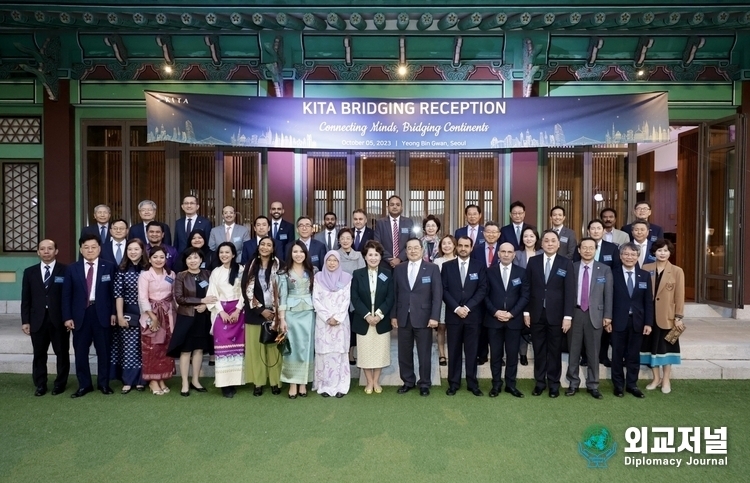By Lee Kap-soo
Christopher Koo, chairman of the Korea International Trade Association (KITA), hosted a networking dinner for ASEAN and Middle East ambassadors at the Shilla Hotel in Seoul on Oct. 5 to exchange views on economic cooperation with their respective countries and request their support for the 2030 Busan World Expo.
The dinner was attended by 35 ambassadors and diplomats from 21 ASEAN and Middle Eastern countries, according to a statement by the KITA. On the Korean side, more than 20 representatives of KITA and trade enterprises were present.

"Based on our firm support for 'ASEAN-centricity,' Korea is closely communicating with ASEAN countries for freedom, peace, and prosperity in the region," Koo said at the dinner. "With the countries of the Middle East, we are strengthening cooperation in new industries for a sustainable future for humanity, such as smart cities and renewable energy."
"The 2030 Busan World Expo will contribute significantly to the freedom, peace and prosperity of the world's citizens by overcoming the crises and challenges we face globally and sharing our vision for the future," he added, calling on countries to support the event.
According to a survey of the trade industry conducted by the KITA in September, Korean businessmen recognize the importance of both ASEAN and the Middle East and have high hopes for the development of relations.
Nine out of 10 respondents (90.5%) said ASEAN was an important market, while 78.8% of businesspeople said the Middle East was "important" to them.
Relations between Korea and ASEAN were described as "fair" (51.5%) and "good" (47.1%), while relations with the Middle East were described as "fair" (47.1%).
The proportion of respondents who believe that relations between the two regions will improve in the future was 60.9% for the Middle East and 79.2% for ASEAN.
"Korean companies cited the large domestic market and high growth potential as the top reasons for wanting to enter the ASEAN-Middle East market," said KITA. "However, they also cited a lack of information about the region and difficulties with legal, accounting, and taxation issues as barriers to entry."
"We regularly organize networking events inviting foreign ambassadors to Korea to provide opportunities for exchanges with Korean companies," KITA said, adding, "We are laying the foundation for private business diplomacy and supporting the expansion of economic cooperation."

